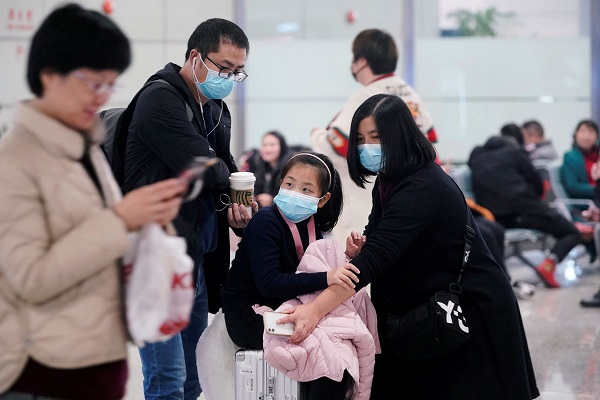Strictest measures enacted to contain viral pneumonia


Amid the severe situation, China is ramping up efforts in several areas. On Jan 20, President Xi Jinping ordered that resolute efforts should be made to curb the spread of the virus, stressing putting people's safety and health as the top priority.
Premier Li Keqiang chaired a State Council executive meeting on Jan 20 to coordinate measures. He called for all related authorities to fully estimate the situation and increase cooperation among government departments.
Li ordered stricter preventive measures at hospitals and better protection for medical workers. The Wuhan Health Commission reported on the morning of Jan 21 that 15 medical workers in the city have been infected.
Also on Jan 21, the National Health Commission listed the pneumonia caused by the virus among Grade B infectious diseases, a category that includes such major infectious diseases as SARS, AIDS and polio.
Currently, however, the new virus will be treated as a Grade A infectious disease, which requires the strictest prevention and control measures, including mandatory quarantine of patients and medical observation for those who have had close contact with patients, according to the commission.
At present, only two infectious diseases — bubonic plague and cholera — are classified as Grade A infectious diseases in China.
Wang Yuedan, an immunology professor at Peking University, said managing the new disease as Grade A will greatly help in its control and prevention. Some other serious infectious diseases, such as SARS, are also classified as Grade B infectious diseases, but have been managed as Grade A infectious diseases during their outbreaks, Wang said.
On Jan 21, Wuhan Mayor Zhou Xianwang called on locals not to leave the city and people from outside not to come to Wuhan if there's no particular need.
"Less human migration can reduce the spread of the virus, easing the pressure of prevention and control of the disease," he told China Central Television.
Hubei Governor Wang Xiaodong asked on Jan 21 for full efforts to monitor and report the outbreak. He said no delayed reports or coverups would be tolerated, and he asked for better public communication to respond to public concerns.
On Jan 21, the World Health Organization said in a statement that sustained human-to-human transmission may exist, and warned more cases of the virus could appear in China and outside in the coming days, given travel patterns and increased testing.
The Chinese government is sharing information regularly and working closely with the WHO, it said, adding that a team of WHO experts are working with health officials in Wuhan in response to the virus.
"The WHO encourages all countries to continue preparedness activities," WHO China said.
Although much remains to be understood about 2019-nCoV, including how it is transmitted, the clinical features of the disease, its severity, the extent to which it has spread and its source — progress is underway, it said.
China, along with other affected countries, will attend an emergency committee meeting convened by the WHO on Jan 22 to share information about the disease, Foreign Ministry spokesman Geng Shuang said on Jan 21.
Representatives from a number of countries, the WHO and relevant experts will make accurate assessments about the outbreak, Geng told a daily news conference.




